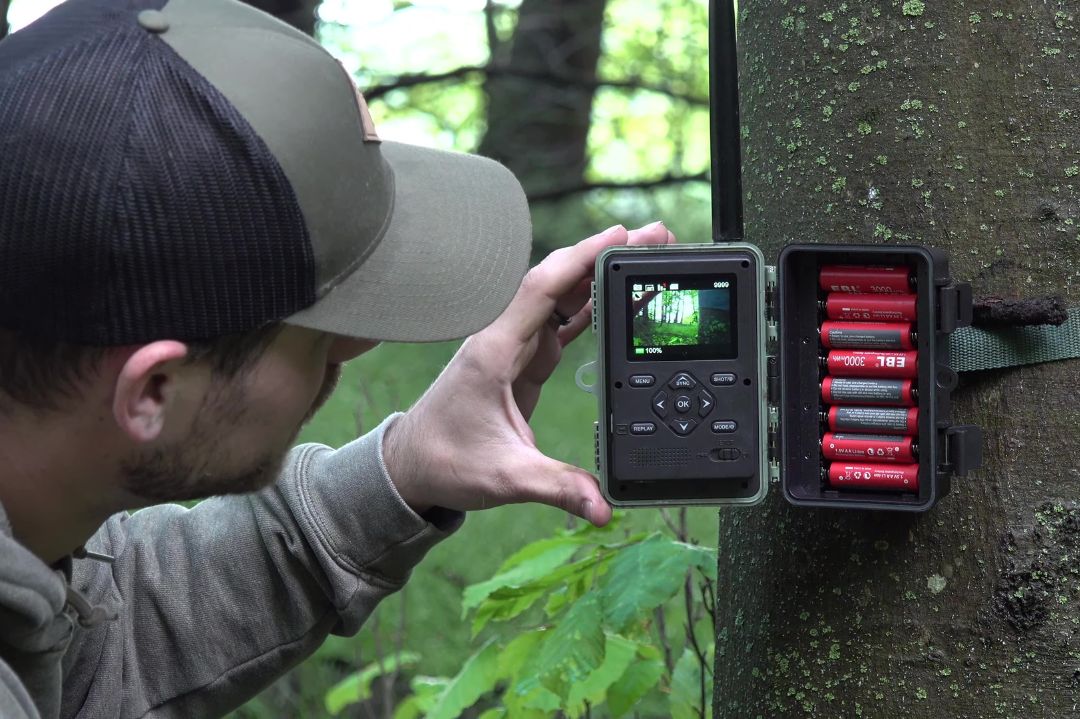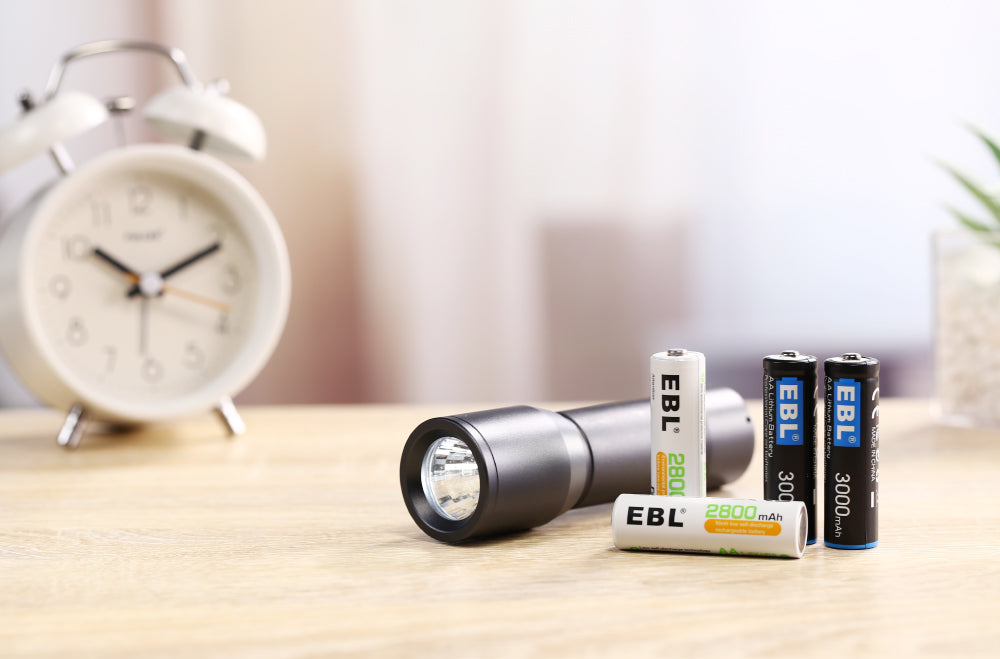Digital door locks have become a popular choice for home and business security. These locks are convenient because of the ability to control access with just a few taps on your smartphone or physically using your fingerprint or even facial recognition. But imagine this, you’re back home after a long day and you want to get into your home you hear a beeping sound and your access into your home isn’t as easy as it was yesterday, your battery is low, you would have to try your fingerprint or passcode a few times before you can get in or in some cases, not being able to enter in at all because the battery on the device has died completely.
One crucial aspect that can make or break the reliability of your digital door lock is definitely its battery life. The advancements in battery technology have significantly influenced the performance and durability of digital door locks though, you’ll be rest assured that it remain functional when you need them the most.
As we look into 2024, understanding which batteries offer the best performance for these locks is essential for maintaining the security of your home or office.
Choosing the "right" batteries not only reduces the frequency of battery replacement and saves costs but also protects your smart digital door lock from damage caused by battery leakage, which can harm internal electronic components, circuit boards, or battery compartments, thus extending the lifespan of your smart digital door lock!
In this article, we’re excited to walk you through the different types of batteries that are great for digital door locks. We’ll talk about the key things to think about when picking the right batteries and answer some common questions to help keep your lock working smoothly. By the end of this guide, you’ll feel confident in making the best battery choices for your digital lock, ensuring it stays reliable and secure.
Let’s dive in!
Types of Batteries Used in Digital Door Locks
Digital door locks primarily rely on batteries to function, and the type of battery you choose can greatly impact the lock's performance and longevity. The most common batteries used are AA, AAA, and lithium-ion batteries. AA and AAA batteries are widely available and are known for their reliability in low-drain devices, which makes them a standard choice for many digital door locks.
These batteries are easy to replace and generally affordable, but they do require frequent changes depending on usage. Lithium-ion batteries, on the other hand, offer a higher energy density, making them ideal for digital locks that demand more power, such as those with Wi-Fi or Bluetooth connectivity.
Rechargeable batteries are also gaining popularity due to their environmental benefits and long-term cost savings like our rechargeable Li-ion or Ni-Mh batteries, though they may not hold a charge as long as their non-rechargeable counterparts. Each battery type comes with its own set of pros and cons, and choosing the right one depends on your specific lock model and usage habits.
Top Battery Brands for Digital Door Locks (2024)
When it comes to selecting batteries for your digital door lock, the brand you choose can make a significant difference in performance and reliability. In 2024, several battery brands stand out for their exceptional quality and customer satisfaction.
Duracell continues to be a top choice for many, offering high-performance AA and AAA batteries that are known for their long-lasting power and reliability in various devices, including digital locks but there are new players in town too which offer really great batteries at a better price range too. Among them are EBL, offering a range of battery options including AA, AAA, 9V, Ni-Mh Batteries, Ni-Cd Batteries, Li-ion Batteries, USB Li-ion Batteries and many others.
Factors to Consider When Choosing Batteries for Digital Door Locks
Choosing the right battery for your digital door lock involves considering several factors that can influence both the lock’s performance and your overall satisfaction.
Battery life is arguably the most important factor, as a battery that lasts longer reduces the frequency of replacements and the risk of your lock failing at an inconvenient time. The cost is also a key consideration—while premium batteries may offer better performance, they often come at a higher price, so it's essential to balance cost with longevity.
Environmental impact is another aspect to consider, especially if you’re looking to minimize waste; in this case, rechargeable batteries might be the better choice. Compatibility with your specific lock model is crucial as well, as not all batteries are suited for every type of digital door lock.
Ensuring that the battery you choose fits and functions optimally with your lock can save you from potential issues down the road. Taking all these factors into account will help you make an informed decision that meets both your security needs and your budget.
To make things simpler for you, below is how you can decide the type of battery most suited for you:

User Tips for Maintaining Battery Life in Digital Door Locks
Maximizing the battery life of your digital door lock not only saves you money but also ensures that your lock remains functional when you need it most. One of the simplest yet most effective tips is to regularly check and replace batteries before they are completely drained, as letting them run out entirely can sometimes lead to lock malfunctions.
It’s also important to use batteries recommended by the lock manufacturer, as using incompatible batteries can affect performance and even damage the lock. Additionally, avoid mixing old and new batteries, or different brands, as this can cause uneven power distribution and reduce battery life. Keeping your lock and the battery compartment clean and free from dust and moisture will also help maintain optimal battery performance.
Finally, if you’re using rechargeable batteries, make sure to fully charge them before use and recharge them at regular intervals to maintain their capacity and longevity.
Conclusion
When it comes to powering your smart digital door lock, AA batteries are the go-to choice for most models. The exact number you’ll need can vary depending on the brand and how many features your lock has, but generally, you’re looking at somewhere between 4 to 8 AA batteries.
Now, because these locks need a decent amount of juice to work properly, you’ll want to choose the right type of battery. Among the options like carbon-zinc, alkaline, and rechargeable batteries, alkaline batteries are your best bet. They offer the highest voltage, which is crucial for operating the lock mechanism. Plus, alkaline batteries are more efficient—they can hold about 3 to 6 times the capacity of carbon-zinc batteries, making them much better suited for smart locks.
But it’s not just about power. Carbon-zinc batteries, for example, have a tendency to leak over time because the zinc used as the negative electrode gets thinner with use. And nobody wants a leaky battery ruining their lock, right?
Rechargeable batteries, while convenient, have their own issues—mainly, they can be unstable when it comes to voltage. This can lead to your lock suddenly losing power without warning or giving you a false reading that the battery is empty when it’s not, which could leave you locked out.
That’s why most smart lock manufacturers recommend sticking with alkaline batteries. If you decide to use something else and it ends up damaging your lock, it could be considered user error, and you might not be covered under warranty. So, to keep things running smoothly, alkaline batteries are the way to go.




Dejar un comentario
Todos los comentarios se revisan antes de su publicación.
Este sitio está protegido por hCaptcha y se aplican la Política de privacidad de hCaptcha y los Términos del servicio.